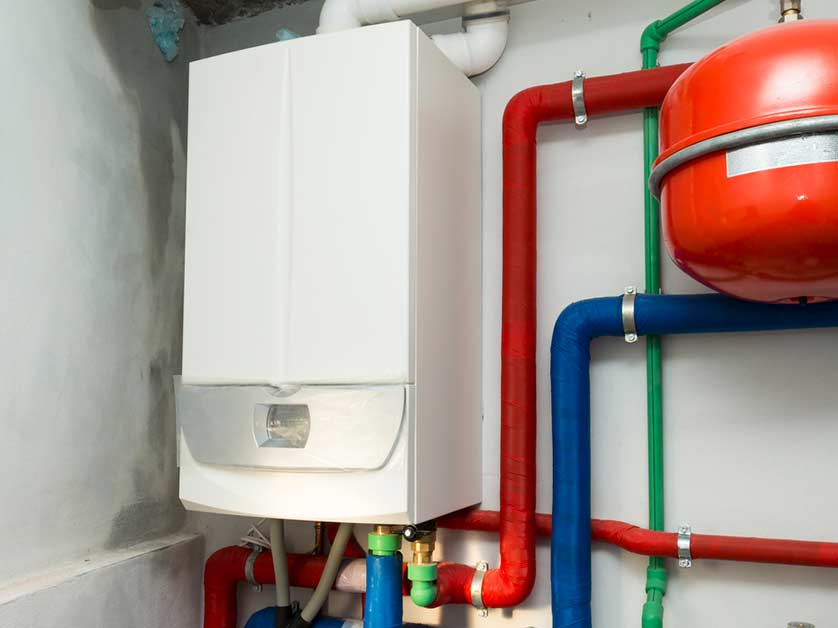As winter’s chill sets in deep, a critical yet often overlooked component of your home’s heating system might be at risk—the boiler condensate pipe. Freezing temperatures can silently damage this essential part of modern condensing boilers, potentially leaving your cozy home uncomfortably cold. Let’s dive deep into understanding this issue and how you, as a homeowner, can address it with confidence.

Understanding Your Boiler’s Condensate Pipe
Modern condensing boilers, which are prevalent in many Lubbock homes for their efficiency, produce condensate—an acidic water byproduct of the heating process. The condensate pipe is responsible for safely carrying this wastewater from your boiler to an outside drain. It’s usually a white or grey plastic pipe exiting near the bottom of your boiler. Despite its critical role, this pipe is vulnerable to freezing during cold snaps, potentially causing your boiler to halt its operation for safety reasons.
Spotting a Frozen Condensate Pipe
Identifying a frozen condensate pipe early can save you from unexpected boiler downtimes. Look out for specific boiler fault codes, such as L2 or F2, which often indicate freezing issues. Additionally, unusual gurgling noises from your boiler could be a telltale sign, especially during significantly low temperatures in Lubbock.
Thawing Your Frozen Condensate Pipe
Should you encounter a frozen condensate pipe, there’s no need for immediate despair. Thawing it is a manageable process:
-
Locate the Pipe
It extends from the base of your boiler, usually going through an external wall.
-
Apply Heat
Wrapping a hot water bottle or a warm cloth around the frozen section of the pipe is a safe method to gently thaw it. Alternatively, pouring warm (not boiling) water over the frozen area can speed up the process.
-
Reset Your Boiler
After addressing the freeze, resetting your boiler might be necessary to resume its normal operation.
Preventing Future Freezes
Proactive measures can minimize the chances of your condensate pipe freezing again:
-
Insulation
Using waterproof and ideally UV-resistant insulation materials can provide a first line of defense against freezing.
-
Boiler settings
During extreme cold, setting your boiler to a continuous low heat can prevent water in the pipe from freezing without significantly impacting your utility bills.
When to Seek Professional Help
While many can successfully thaw a frozen condensate pipe, certain situations call for professional expertise. If your pipe is not easily accessible or if thawing attempts don’t resolve the freezing, contacting a trained HVAC specialist is advisable. A professional can not only safely rectify the immediate issue but also offer long-term solutions to prevent reoccurrence.
Knowing how to identify and address boiler issues can ensure your home remains warm and comfortable, even on the coldest days. Remember, while DIY methods can offer immediate remedies, don’t hesitate to seek assistance from local HVAC professionals like Duncan Heating & Air Conditioning, Inc. & Plumbing for complex issues or preventive measures. Give us a call at (806) 798-1738 or fill out our online form to schedule an appointment.



